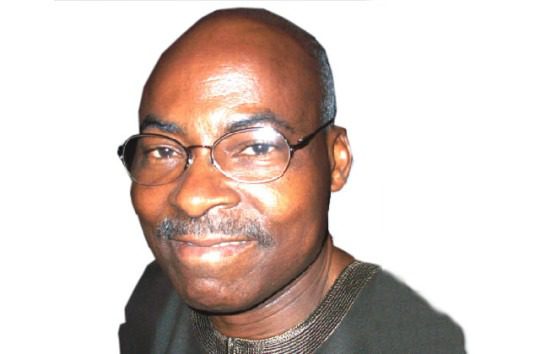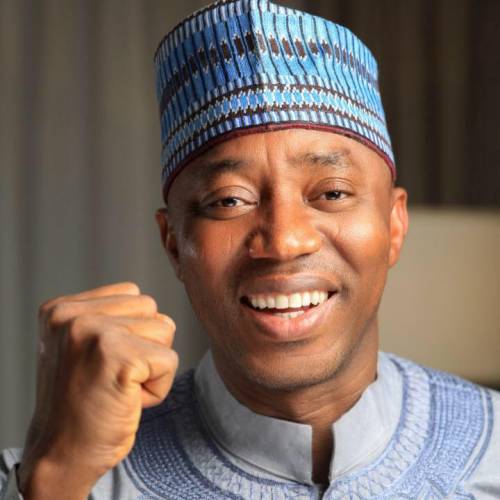Political Issues
Omoyele Sowore Is Not Alone -By Niyi Akinnaso

When Omoyele Sowore, career activist, publisher of Sahara Reporters, and presidential candidate in the 2019 general elections, was first arrested in July, 2019, I chastised him, not for leading a protest but for the provocative invocation that accompanied his call for a revolution.
Although he made inflammatory statements and used a provocative word—revolution—in his July 25 speech, it was not the case that he had an army or anything of the sort to topple the government. The word was used only to add colourful emphasis to the need for the government to change its ways in order to make Nigeria work better and for everyone. It was also intended to rally his base of supporters to join him.
Need I emphasise that Sowore was exercising his right to protest and to freely express himself as guaranteed by the constitution? The word “revolution”, which he chose to use to encapsulate his statement is not strange to Nigerian political vocabulary. We’ve spoken about ethical revolution and, more recently, about agricultural revolution. It’s all about change in the way of doing business.
Nevertheless, I anticipated the unwarranted interpretation of Sowore’s statement by English language-challenged security forces, short on institutional memory, and by a government in crisis: It will be recalled that the government was facing court challenges on the election of the President, whose former role as a military dictator puts him on edge on hearing about revolution. Besides, the government has been confronted with security challenges from various sources and its political party—the All Progressives Congress—was, and still is, in a crisis of its own.

I did not spare the government and the Department of State Security, either, for the draconian response to Sowore’s call for revolution. His initial arrest was unwarranted not to mention his prolonged detention, even beyond repeated court orders for his release.
Even more unwarranted and downright disgraceful was his re-arrest in open court a day after his release from detention. The exact location and timing of the re-arrest don’t even matter. Viewers of the video-taped recording, which will live in cyberspace forever, are free to make their own judgement. What matters is that the event happened at all and in such a disgraceful scuffle, apparently involving uniformed security agents, fully robed lawyers, and eyewitnesses from Sowore’s family and friends as well as civil society.
The controversy over the rearrest makes matters worse. The DSS’s doublespeak on the matter is below the expected dignity of the Department. So is the claim that Sowore stage-managed his own arrest. If so, why then is he still in custody? And if, as it was claimed, the presidency knows nothing about it, then why not order his immediate release?
After all, the offenses for which he was charged were said to have been committed against the state. If the presidency wasn’t convinced that he had committed any offense or if it headed local, international, and court interventions, the scuffle over Sowore’s rearrest would not have occurred.
Sowore’s rearrest recalls the case of the trickster tortoise, who stole his in-law’s yams. As punishment, he was tied to a tree by the roadside. It was on a market day. On their way to the market, traders blamed the tortoise for his offense. However, they changed tune on their return from the market in the evening, when they found the tortoise still tied down. They blamed the in-law for excessive punishment.
At this point, what is expected of the in-law is to release the tortoise from torture rather than investigate how the yams were stolen. By the same token, the desired response from the government to Sowore’s rearrest is not a probe of the court invasion by the DSS, although such a probe is desirable. What is even more desirable and expected is Sowore’s immediate release.
But why are the government and the DSS afraid of Sowore-led protest to the point that it was killed before it even took off? After all, no weapons were found, when his property was invaded during his initial arrest and no one has been tickled with a pin by Sowore or his followers since the announcement of his #Revolution Now protest.
Comparisons cannot but be drawn with the violent sympathy protests which followed then Presidential candidate Muhammadu Buhari’s electoral loss in 2011. Hundreds of people, including innocent members of the National Youth Service Corps, were killed in the protests and property worth billions of Naira was destroyed. Till today, no one has been held accountable for those protests, despite pre-election boasts by Buhari’s supporters that the country would be made “ungovernable”, were him to lose.
The truth today is that there is a global spread of protests among which Sowore’s is only a drop in the bucket, compared to the scale and intensity of many protests elsewhere. Rather than continue to live in blissful ignorance of the global spread of protests, it is important to place Sowore’s aborted protest within a global context. This past decade, there have been protests on all continents.
In 2019 alone, protests have occurred in over 50 countries, including the United States, United Kingdom, Canada, France, Germany, Denmark, the Netherlands, Hong Kong, Indonesia, Australia, Venezuela, Colombia, Mexico, Peru, Chile, Uruguay, Haiti, Israel, Egypt, Syria, Turkey, Lebanon, Iran, Iraq, South Africa, Zimbabwe, Malawi, Uganda, Guinea, Sudan, and so on. A common demand across all protests is the call for reform, for the political class to understand the plight of the masses, for a change in the way of doing business.
What is even more important is that virtually all the known causes of protests across the globe are present in Nigeria today, some in superlative degree. They include endemic corruption; election fraud; economic decline; growing inequality; tuition and tax increases; climate change; obnoxious laws; infrastructural decay; and calls for political autonomy, personal freedom, and self fulfillment.
In essence, Sowore was calling attention to these problems. Their persistence and lack of due attention to them have continued to put the country in the bottom pile on major international indices, including the Corruption Perception Index, the Failed States Index, the Human Development Index, and the World Poverty Index.
It is also important to note that youths, especially students, are in the forefront of most protests across the globe, because it is their future that is at stake. This is particularly so in Nigeria, where the national debt far outstrips the life of the present administration and many more to come, thereby eclipsing the future of Nigerian youths, who constitute the majority of the population, with 42.54 percent being below age 14.
What is worse, about 88 per cent of the entire population is said to be dependent on the remaining 12 percent, thus accentuating the wide gulf between the rich and the poor. Thus, there are two ticking time bombs, namely, youth explosion and deepening poverty.
It is against these local and global contexts that Sowore’s planned protest must be viewed. Repressing dissent and protests now is postponing the evil day and shying away from necessary reform. Besides, repression is the beginning of autocracy. It may well be the beginning of the death of our young democracy.
Sowore may be in detention today, and his protest may have been aborted. The DSS may crack down on any protest as they want. Nevertheless, if Nigeria continues along the present path, protests will happen. It will be difficult then to repress them, because they will be leaderless as they will involve everybody: Jobless youths, students learning under poor conditions and decrepit facilities, the elderly without social security, the hungry, the sick, the homeless, and others will fill the streets.
The political class and others cocooned in their wealth may be blind to the plight of the masses. The image of a young roadside hawker and his experience comes to mind. As he was rushing to brandish his wares, an SUV drove past mine, overtaking everyone in lane, splashing mud water on the hawker and others by the roadside as the SUV galloped from one pothole to another.
The hawker put down his wares, squeezed out dirty water from his shirt, and cursed the owner of the SUV and the driver. Others by the roadside chorused him. Another person railed at the government for not taking care of the roads. These are people who may not hesitate to join future protests to reclaim the future of their country, their future.



















